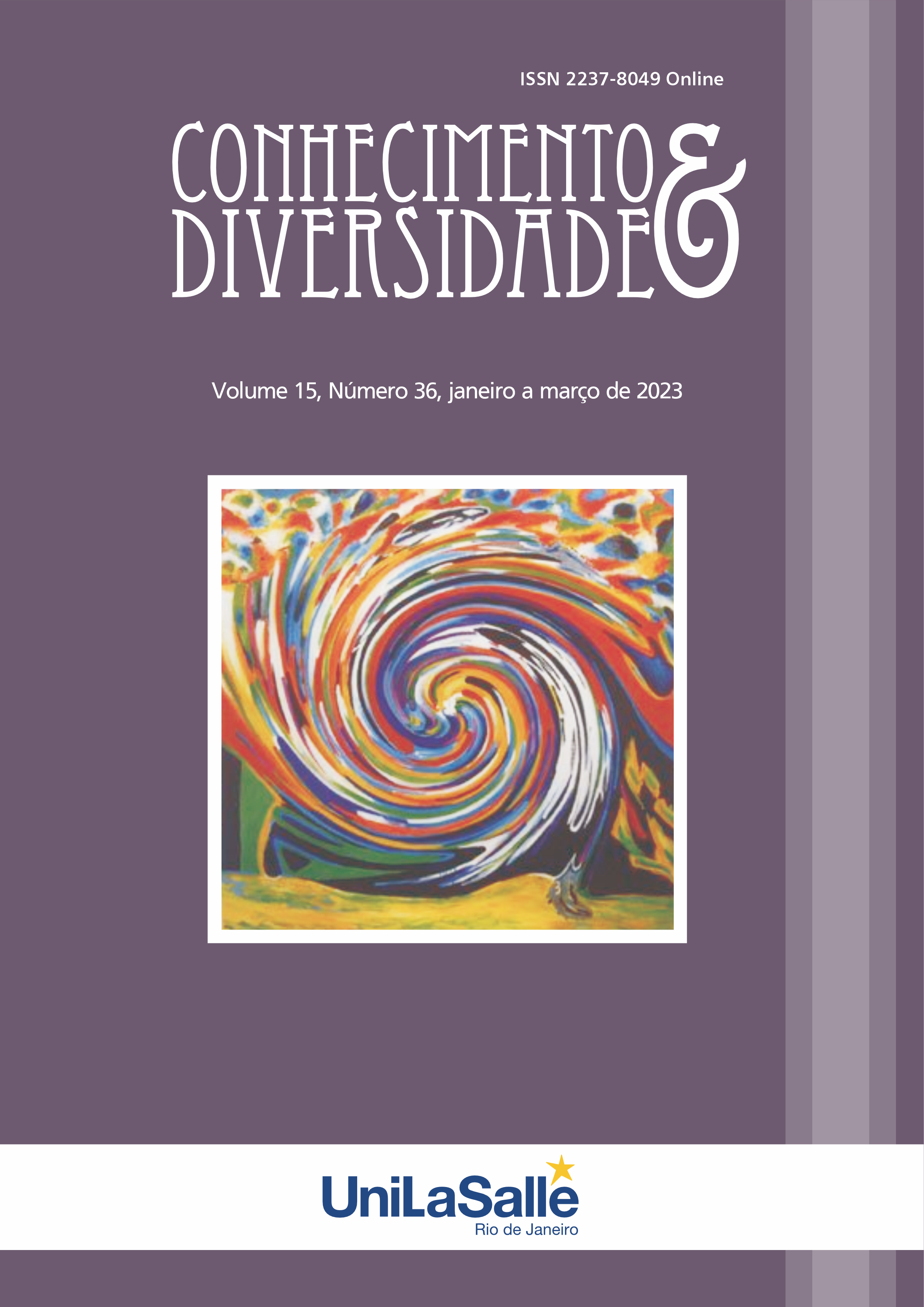PERCEPÇÕES DOS PROFESSORES SOBRE O CURRÍCULO DE EDUCAÇÃO AMBIENTAL:
UM ESTUDO DE CASO DAS ESCOLAS PRIMÁRIAS DA LÍBIA
DOI:
https://doi.org/10.18316/rcd.v15i36.10789Palavras-chave:
Mudança climática, Currículo ambiental, Educação ambiental, Escolas primárias líbias, Percepções dos professoresResumo
A educação ambiental como todas as formas de educação é um processo de aprendizagem que requer um currículo de ensino projetado de forma otimizada. Entretanto, ao contrário de outros cursos e formas convencionais de educação, a educação ambiental não é uma forma linear de aprendizagem, uma vez que requer um ensino complexo e baseado no local, devido à individualidade e diversidade das pessoas e de seu ambiente local e da biodiversidade. A Líbia, como a maioria dos países do mundo, aderiu à luta ativa contra a mudança climática através da incorporação da educação ambiental ao sistema tradicional de educação e do desenho de um currículo para todo o sistema escolar, a fim de garantir uniformidade nos padrões de aprendizagem. Este estudo realiza uma investigação sobre a eficiência do currículo de educação ambiental da escola primária líbia a partir da perspectiva dos professores da escola primária. Usando questionários abertos projetados usando uma estrutura teórica adequada, os professores na Líbia foram pesquisados por suas percepções sobre a satisfação com o currículo, suas aversões sobre o currículo, o que mais gostaram no currículo, e como se prepararam para usá-lo e as modificações complementares que nele realizam. Os resultados deste estudo indicam uma constatação onde a maioria dos professores estava satisfeita com sua eficiência, mas recomendaram várias mudanças para permitir que ele se tornasse ótimo.
Referências
Ardoin, N. M., Bowers, A. W., & Gaillard, E. (2020). Environmental education outcomes for conservation: A systematic review. Biological Conservation, 241, 108224.
Aomr, J. A. W., Seng, G. H., & Kapol, N. (2020). Relationship between willingness to communicate in English and classroom environment among Libyan EFL learners. Universal Journal of Educational Research, 8(2), 605-610.
Boca, G. D., & Saraçlı, S. (2019). Environmental education and students’ perception, of sustainability. Sustainability, 11(6), 1553.
Fogo, B., Reisman, A., & Breakstone, J. (2019). Teacher adaptation of document-based history curricula: Results of the reading like a historian curriculum-use survey. Journal of curriculum studies, 51(1), 62-83.
Franco, I., Saito, O., Vaughter, P., Whereat, J., Kanie, N., & Takemoto, K. (2019). Higher education for sustainable development: Actioning the global goals in policy, curriculum and practice. Sustainability Science, 14(6), 1621-1642.
Gadour, A. (2019). Democracy and education in Libya. In Oxford Research Encyclopedia of Education.
Georgiou, Y., Hadjichambis, A. C., & Hadjichambi, D. (2021). Teachers’ perceptions on environmental citizenship: A systematic review of the literature. Sustainability, 13(5), 2622.
Hickman, L., Bosch, N., Ng, V., Saef, R., Tay, L., & Woo, S. E. (2022). Automated video interview personality assessments: Reliability, validity, and generalizability investigations. Journal of Applied Psychology, 107(8), 1323.
Jickling, B., & Wals, A. E. (2019). Globalization and environmental education: Looking beyond sustainable development. In Curriculum and Environmental Education (pp. 221-241). Routledge.
Jorgenson, S. N., Stephens, J. C., & White, B. (2019). Environmental education in transition: A critical review of recent research on climate change and energy education. The Journal of Environmental Education, 50(3), 160-171.
Kalinowski, E., Gronostaj, A., & Vock, M. (2019). Effective professional development for teachers to foster students’ academic language proficiency across the curriculum: A systematic review. AERA Open, 5(1), 2332858419828691.
Shipton, E. E., Bate, F., Garrick, R., Steketee, C., Shipton, E. A., & Visser, E. J. (2018). Systematic review of pain medicine content, teaching, and assess
Starkey, L. (2020). A review of research exploring teacher preparation for the digital age. Cambridge Journal of Education, 50(1), 37-56.
Stapleton, S. R. (2020). Toward critical environmental education: A standpoint analysis of race in the American environmental context. Environmental Education Research, 26(2), 155-170.
Wakashima, K., Asai, K., Kobayashi, D., Koiwa, K., Kamoshida, S., & Sakuraba, M. (2020). The Japanese version of the Fear of COVID-19 scale: Reliability, validity, and relation to coping behavior. PloS one, 15(11), e0241958.
Yildiz, Y., & Budur, T. (2019). Introducing environmental awareness to college students with curricular and extracurricular activities. International journal of Academic Research in business and Social Sciences, 9(3), 667-675.
Downloads
Publicado
Edição
Seção
Licença
Copyright (c) 2023 Conhecimento & Diversidade

Este trabalho está licenciado sob uma licença Creative Commons Attribution 4.0 International License.
Conforme recomendado pelo o Public Knowledge Project, a RCD adota para seus artigos uma licença CREATIVE COMMONS: Atribuição CC BY 4.0.
Esta licença permite que outros distribuam, remixem, adaptem e construam sobre o seu trabalho, mesmo comercialmente, desde que lhe dêem crédito pela criação original.
Esta é a licença mais adequada oferecida.
Recomendado para a máxima divulgação e uso de materiais licenciados.



